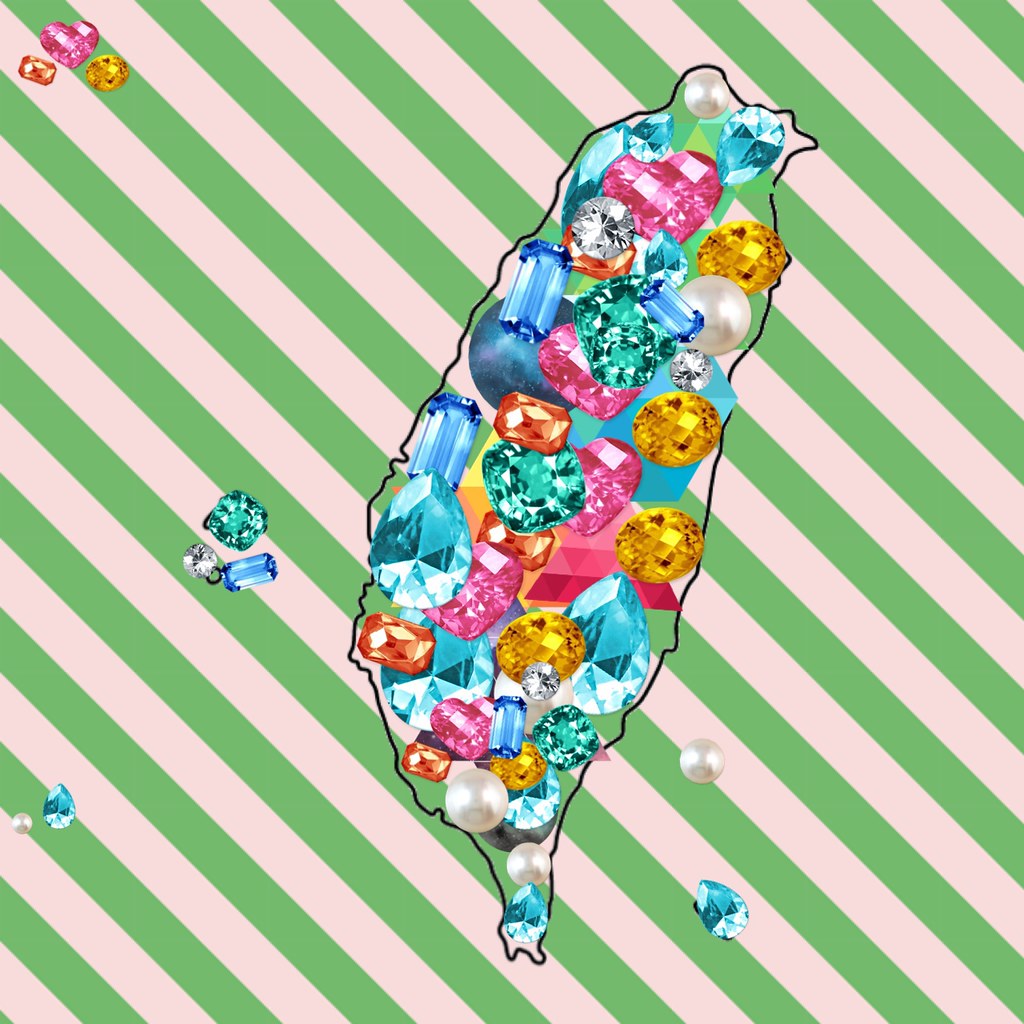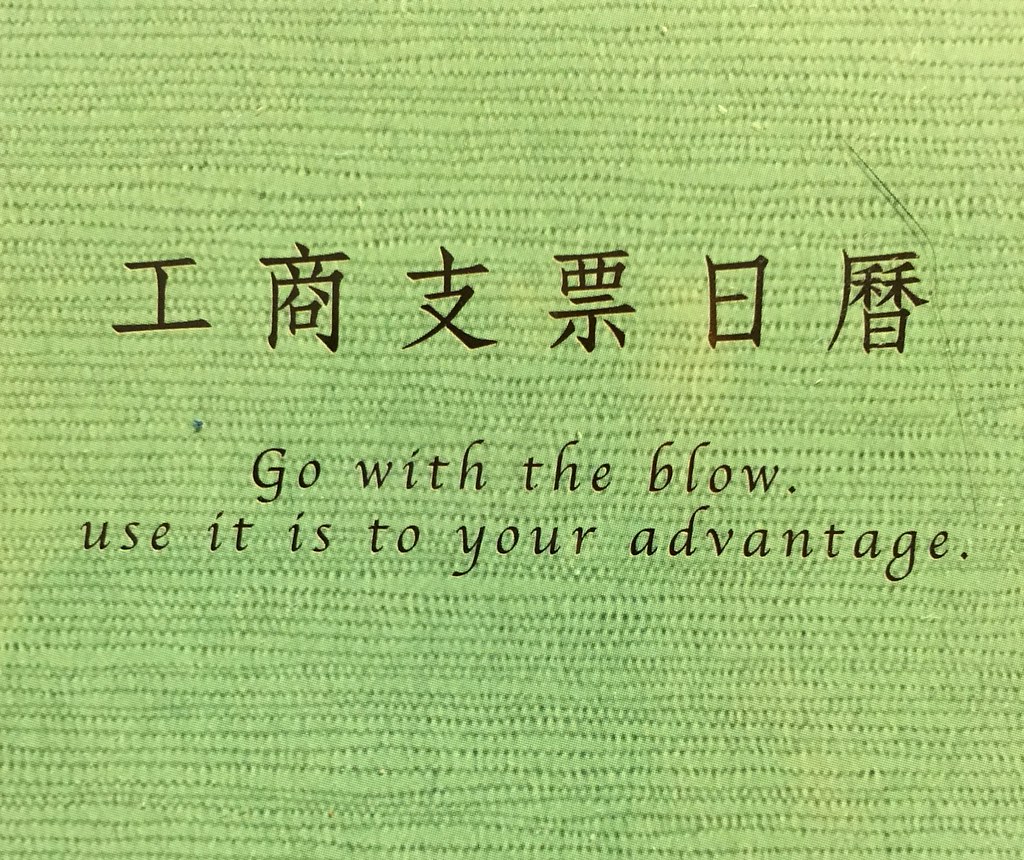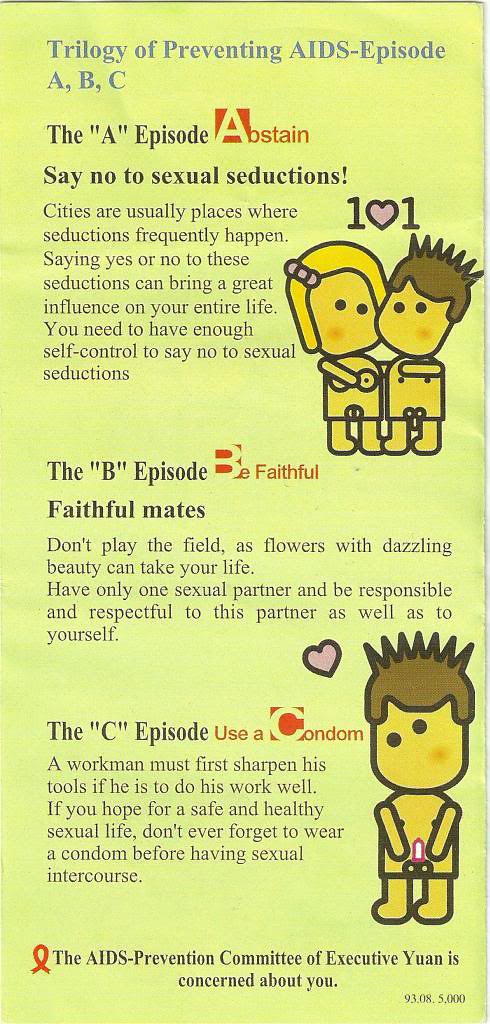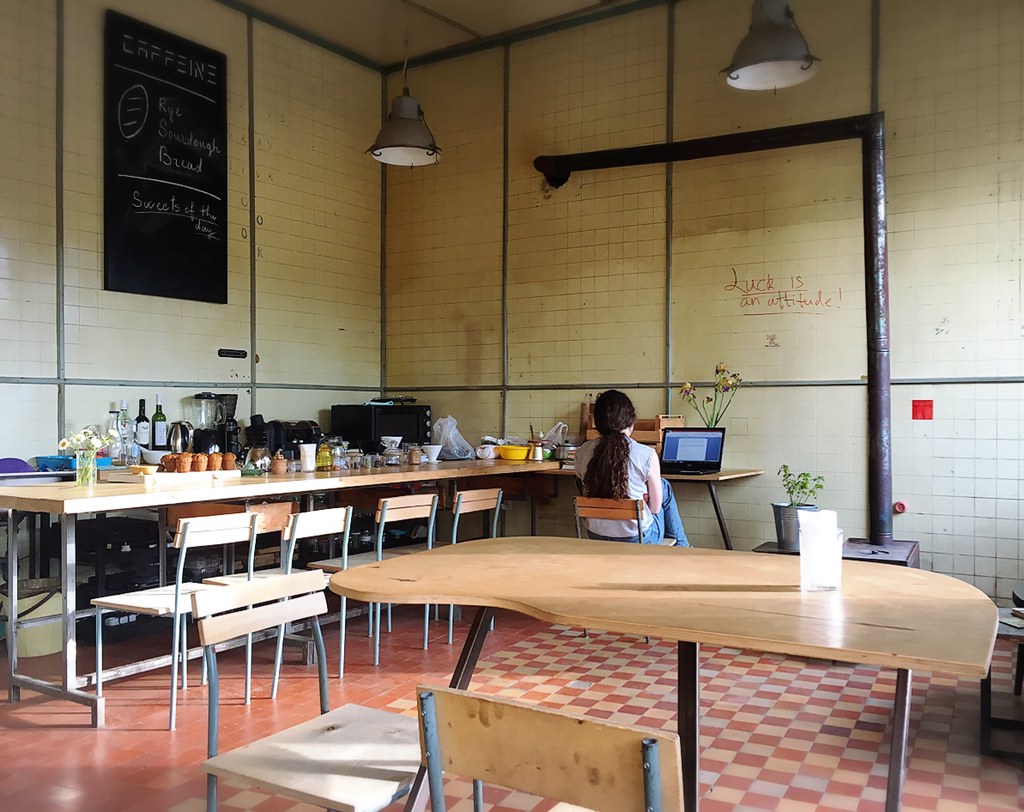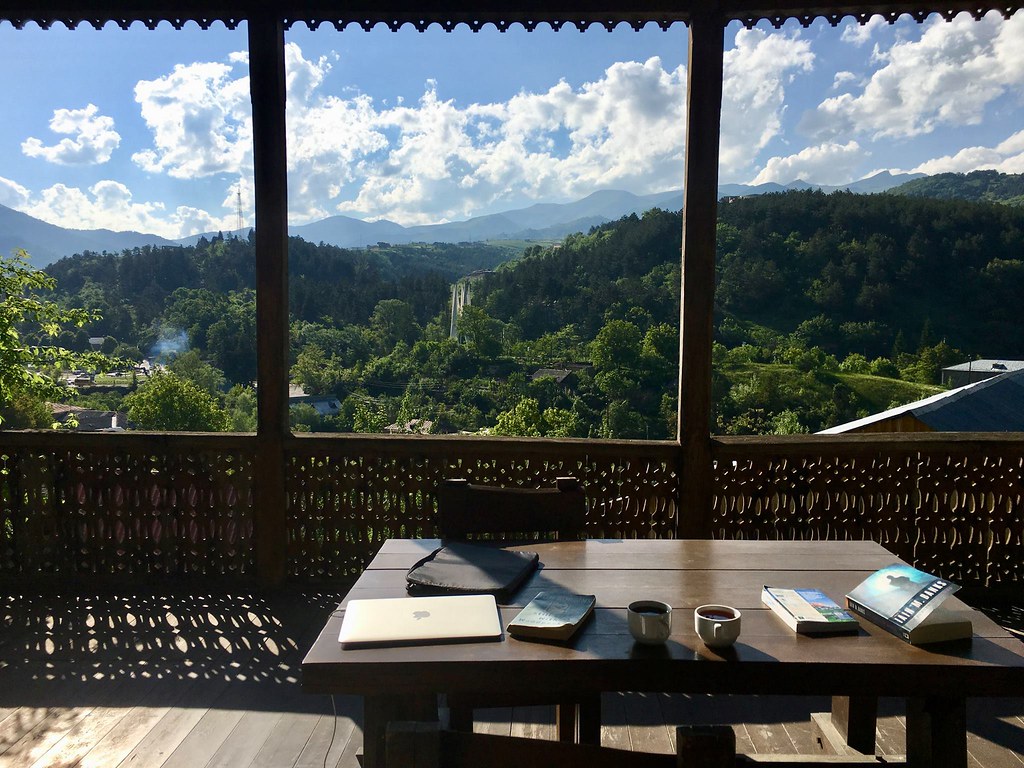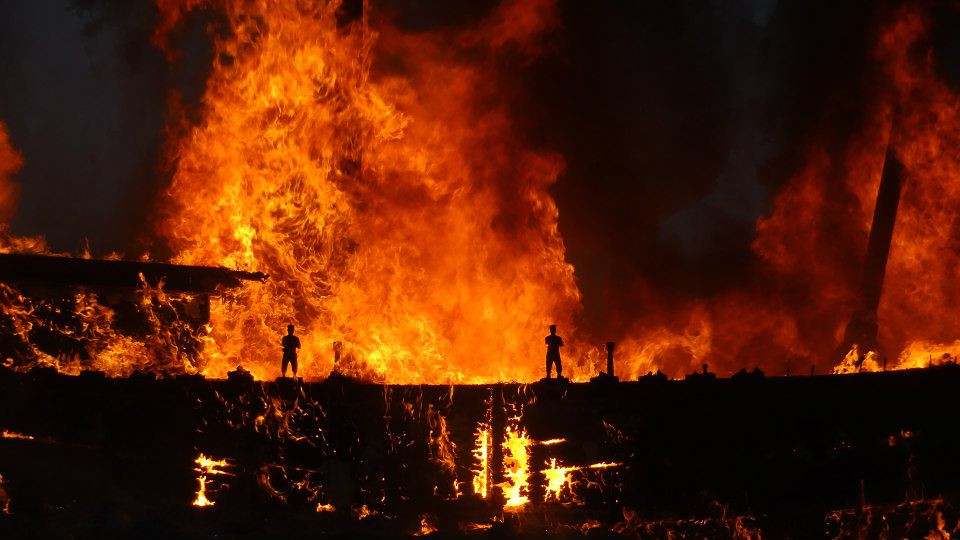 |
| I had lots of great pictures from this protest, and lost all of them. A shame. So I've stolen this from Wikicommons like a scrub and I'm not even sorry. |
On October 10th, 2006, I was sitting in a Starbucks across the street from Taipei Main Station watching
an angry wave of red roll by.
I had arrived in Taiwan just one month before, knowing next to nothing about Taiwan but thinking, as young graduates often do, that I knew quite a bit. It went something like this: there were two main parties in the "Republic of China" - the KMT, which I knew about, and the other one, which I didn't. The KMT had been the republicans-in-the-lower-case-sense who had fled from China, establishing themselves in the last vestige of "Free China", which was Taiwan. I hadn't known what Taiwan had been before that, so I assumed it had been Chinese. That must have been accurate, my subconscious surmised, because nobody had corrected me. The KMT had helped to develop the island into an industrialized and prosperous nation, eventually granting the people democracy. About a third of Taiwanese supported "reunification", a third independence, and a third were undecided. The language of Taiwan was Mandarin Chinese, and the people were Chinese. Chiang Kai-shek had been "corrupt", which was unfortunate, but he was much better than Mao Zedong. Because they had fled China, the KMT obviously did not support "reunification", which even then I did not think was a good idea. I didn't know about the other party. The current president was Chen Shui-bian, who was that other party, and who was pretty bad because he'd stolen some money, so the protesters were probably right. I knew that cross-Strait relations was "a complex issue" but ultimately, as the people of Taiwan had no consensus despite having democratized and having no other impediment, the current status quo was in everyone's best interest.
Pretty clear, right? Wow, I sure did know a lot! Practically a PhD-level expert, that was me. Just hand me my diploma.
I considered myself a good liberal: educated, well-traveled, thoughtful, engaged - a reader, talker and thinker. I cared about egalitarianism, justice, freedom and democracy, and simply doing the right thing even if it is to your detriment. I considered myself open-minded. I was secure both in my liberalism and my opinions and knowledge on Taiwan.
After all, this is what I had been taught. This was the entirety of the history of Taiwan that I had learned in my high school Social Studies class, crammed in at the end of a long unit on China. This was the version of history I defended to my teenage students in China when the subject came up. Nobody mentioned Taiwan in college, even though I'd studied International Affairs with a concentration in Asia. My main focus was South Asia, but that was still no excuse. I hadn't thought anything of it at the time, because it hadn't occurred to me that it might be important.
I had taken one course focusing on China in college - Chinese Culture Through Film. The professor was a lovely woman who had studied in Taiwan, but "had actually wanted to go to the Mainland". At the time, China had been closed to visitors, but she "had a Mao suit" that she "wore all the time", and thought of her professors in Taiwan as "doughy, soft capitalists."
While there might have been a thread of bitter irony in there, a knowledge that her earlier belief in the greatness of Mao's socialism had been misguided - to put it kindly - I hadn't picked up on it. I hadn't been to China yet but I felt a wave of sympathy for this viewpoint, because I assumed, being the larger country, that China was "more interesting" and Taiwan a backwater - of course someone would prefer to go to China.
This was what I knew about Taiwan. Therefore, this was all there was to know about Taiwan.
I'd come primarily because, after a lackluster year in China, I thought I'd give the place a try. I figured I'd probably leave in 2-3 years.
So I sat there as an incoming tide of vermilion-shirted marchers engulfed the street, flooding in to the Starbucks, banging drums, shouting for the president to step down, and generally making much merrier than you'd expect at an American protest.
The person I'd planned to meet so we could check out the action together didn't show, so I talked to a few other people there: protesters and regular coffee-drinkers alike about the Red Shirts and Taiwan in general. I don't remember many of the details of that conversation, but I do remember thinking that nothing I was told fit with the paradigm of Taiwanese affairs I'd believed. So these guys were KMT? No, not all of them, but most. So they were the other party? Some of them. So, if Chen's the bad guy, his party is the problematic one, yes? Hmm - in some ways, but not others. If the KMT gave Taiwan democracy, why does he hate them so much? Well...
Why do they hate him?
Well...
Wait, so these protesters support "reunification"?
No. Not necessarily. Actually, probably not.
That's the other party?
DEFINITELY not.
It wasn't just a different perspective - it didn't have a place at all. It was like trying to run an iPhone app on an old HTC. It made as much sense as coffee with salt or English on a night market t-shirt when one speaks coherent English.
Later, as I picked my way through the vermilion detritus washed up on the sidewalks - little did I know that protesters diligently cleaning up after themselves would become a feature of future Taiwanese social movements, the leaders of which were still in high school or starting college in 2006 - I thought one thing:
I didn't know much about Taiwan at all, and it was time I started really learning.
My name is Jenna Cody. I am a Typical American Liberal, and that is my origin story.
* * *
It's 2017 now. I still read quite a bit on Taiwan. I differ from the typical American liberal in that I've lived abroad for most of my adult life, and in that I am deeply pro-Taiwan: almost everything I thought I knew when I first arrived I have either found to be wrong, partially wrong, or far more complicated than it at first seemed. What might have been correct is now hopelessly out-of-date.
While not anti-China, I see no good argument for trusting the Communists, nor any argument for "unification" when the Taiwanese clearly don't want it, and generally don't identify primarily as Chinese at all. I hang with cool people - real, bona fide experts, advocates and activists - who know things. I've learned a lot, though I wouldn't call myself an expert.
Most Taiwan supporters I know here are liberals by American standards, although our most visible influential allies in the US are conservatives, often right-wing ones at that. This bothers me for a few reasons, the first of which being that the future of Taiwan is a fundamentally progressive one. How could it be otherwise when Taiwan, to cite just one example, will be the first country in Asia to implement marriage equality? I am not sure that social conservatives are the best allies to a country which, on many (though not all) important issues, would be more likely to side with the American left. Beyond that, I worry that their support of Taiwan is more often than not related more to a fear or dislike of China than any real pro-Taiwan sentiment. And, of course, the very idea of preserving the sovereignty of a self-ruled free democracy is fundamentally liberal.
I am not the first to wonder why it is that the American right has taken up the Taiwan cause, whereas the average American liberal, if they take note of the issue at all, either doesn't think it is particularly important or is more actively pro-China than you'd expect.
It would not be an exaggeration to say that in the pro-Taiwan community, how to talk to American liberals about Taiwan is a core issue. Many of us are mystified as to why a pro-Taiwan stance is not immediately recognized as a liberal one: a sovereign nation, a vibrant and engaged democracy in which civil discourse is taken seriously, freedom of expression, national health insurance and recycling as much as possible are so normal that they're taken for granted, human rights are considered fundamental and both women's and
LGBT rights have made great strides, the people are committed to peace and think of the US as an important ally rather than a hegemonic threat.
Taiwan is not perfect, but how is this not every liberal's dream?
Not only is Taiwan democratic and free, but it is standing up against everything liberals hate. Just over a hundred miles away, a brutal authoritarian regime regularly violates human rights, torturing and murdering its own people, restricting basic freedoms and acting increasingly expansionist - both in terms of territorial grabbiness, but also intellectually, trying to control the marketplace of ideas not only at home, but abroad.
Every single day - I cannot say this enough - the Taiwanese people wake up and go about their lives, building their country and making it better, refusing to give up or give in, despite a catastrophe-creating number of missiles pointed right at them. And not only do they refuse to surrender their land and their freedom, but they are committed to solving the problem peacefully. This is the very definition of not only liberalism, but also courage. This is probably the single most heart-rending reason why I stay: I could make more money elsewhere, but I
believe in Taiwan.
And yet, for whatever reason, liberals who balk at Russia's expansionism and (now, at least) sympathize with the Palestinians couldn't care less about Taiwan. It makes no difference to them that the thickest, richest, freest democracy in Asia is in real danger of being swallowed up by one of the most horrific dictatorships of our lifetime.
I am not the first person to observe this: both
Ketagalan Media and
J. Michael Cole have covered this issue extensively.
However, nobody yet seems to have publicly asked the question that could lead to an answer:
Why?
Why don't liberals care about Taiwan - or worse, why are some actively anti-Taiwan? Why is the best writing on Taiwan often found in conservative news sources, and why do liberals start explaining away their apathy whenever Taiwan is brought up?
If we are going to solve the issue of how to talk to American liberals about Taiwan, first we need to know why they don't care to begin with.
I am not an expert, and I don't claim to have a final answer. I can, however, start the conversation. Once we know why, we can formulate solutions.
I tried to write this in a longer post and got bogged down in how much there was to say, so I've decided to split it up into several posts, and I honestly have no idea when it will be finished.
For now, I want to talk about one of the roots of the problem: education.
It isn't surprising that the average Westerner either doesn't care or has inaccurate knowledge about Taiwan when what they are taught is essentially a condensed version of tired KMT talking points. Although my own teacher was careful to note that Chiang Kai-shek was no saint, the KMT as a whole comes out looking rather spiffy in this whole narrative.
It's also not shocking that people assume that China is speaking the truth when they say that annexing China is "reunification" if one's education only covers Taiwan post-1949, heavily implying that before that date, Taiwan and China had always been united. It borders on a lie of omission, and I'd make a solid bet that the average high school Social Studies teacher (and perhaps a few professors who didn't study the region) actually believes that this was the case, or simply hasn't considered the issue long enough to know that it is an issue at all.
It's easy to think that the two sides both see themselves as "China" when that's how it is taught. To be fair, it was the official view of the two governments for some time - the issue is that the few sentences it would take to point out that the official position of the Republic of China does not reflect the view of the people aren't added to this. It's not a big leap to make the argument that nothing can change because both countries use "China" in their official name, and to therefore think that "reunification" either wouldn't be so bad, or that accomplishing it peacefully is possible.
All sorts of nebulous beliefs might form from the mind of a well-meaning liberal with this kind of education: that there was a meaningful "split" in 1949, and that that split was between "Taiwan and China" rather than "the PRC and the ROC". That the KMT is doing the right thing by pursuing closer ties, because after all they brought about successful democratization in Taiwan. That the DPP, considering this history, are the real "troublemakers" by being so "anti-China" (if one even knows who they are). That "one country two systems" is a strong and workable solution.
And most insidiously, that the Taiwanese, being "from China", speaking Chinese, having "the same history" as China and considering themselves "Chinese" would happily "reunite" with China if only China would liberalize and democratize. The very idea that this will never happen and no amount of liberalization on the part of China will change Taiwan's desire for de jure sovereignty, that there was never and will never be a "One China" that includes Taiwan, is nearly heresy after a curriculum that hits these points.
If you believe that, then it's easy to jump to believing that the US not only has no moral obligation to stand by Taiwan, but that in fact should actively stand down. That it's better for everyone involved - including the Taiwanese if they are considered at all - if "reunification" happens.
So, perhaps as an adult with such an education, you read about the
Tsai-Trump phone call. You are predisposed to thinking the party that "advocates independence" is a troublemaker, and as a good liberal you hate Trump, so of course you are upset. Of course Taiwan is the problem.
You might read about Tsai refusing to acknowledge the "1992 Consensus", which the reporter treats as a real consensus that was made and is valid. Being a good, educated liberal, you Google it to find out what it is. As you've always believed that the two sides considered themselves "China", it's not hard to believe that of course they'd agree on "One China", perhaps "with different interpretations." Through that lens, Tsai's refusal to acknowledge this looks like troublemaking rather than
an attempt to correct the narrative.
You certainly don't question what you read in the media, because the media hits all of the points that match up with what you've been taught. This confirmation strikes you as plausible and persuasive. As a good liberal, you tend to believe what people say if it lines up with your education. Insisting that the world is different from what teachers teach and textbooks say - and the media you trust confirms - makes you sound like...my
god, a right-winger or worse, a
Trump supporter. Heavens no!
Let's take this further - not only is the average liberal reader the beneficiary of this kind of education, if they even got that much, but the reporters who wrote the story were too. They can't write better articles, because they genuinely don't know better. They check their facts perhaps with a think tank or simply looking it up, and come across other references to things like "the 1992 Consensus", again from people who don't necessarily know the whole story themselves. The information validates itself in a feedback loop of inaccuracy that nevertheless comforts everyone in it, from teacher to reporter to reader.
Of course, mileage varies. I have friends who have no connection to Taiwan beyond me who know a fair amount about the issue - they're perhaps aware of the web of assurances and communiques that the decaying shanty that is today's US foreign policy on Taiwan is glued together with. Even they tend not to see why the status quo is a long-term problem for Taiwan, or why "economic cooperation" with China is never
only economic cooperation. On the other end, I've met well-meaning educated liberals who genuinely did not think Taiwan was democratic, or even believed that it was already part of China, in a similar position as Hong Kong.
I realize that I'm speaking from experiences I had in school in the 1990s and early 2000s, but honestly, to hear young Westerners today, I'm not sure much has changed.
I know that Taiwan is not likely to get more time in Western educational curricula, but perhaps it doesn't need it, especially in high school. In my school, we spent about as much time on it as we did Australia, and perhaps more than we did on New Zealand. Australia and Taiwan have a similar population, so that's all that can be expected.
However, the time it is given really must be better used. Unwittingly treating Taiwan like nothing more an extension of the KMT regime, before which nothing that happened there mattered, heavily implying that it has always been Chinese is simply not good enough, and is a huge part of why we struggle to gain liberal support now.
It seems simple to say that teachers simply need to teach the truth - a mention of aboriginal settlement,
the truth of Qing colonialism, Japanese colonialism (that in my education this was skipped over completely astounds me even today), a bit more time exploring KMT brutality in Taiwan, and a bit less on China's views of Taiwan which can honestly be summed up in one sentence. A few minutes explaining that
the current status of Taiwan under international law is undetermined, and what
the US's actual Taiwan policy is. A treatment of the views of the people of Taiwan that...well, that take into account their views at all to begin with, and is also accurate. Not using the term "reunification". Making it clear that the Taiwanese are so against unification not because they're just garrulous or quarrelsome, but because their history really is unique. Less time comparing Chiang to Mao, and more on these other issues. You could do it in the same timeframe.
Of course, it's not that simple. Schoolteachers are not omniscient in their subjects. History or Social Studies teachers won't necessarily know these details themselves, and we honestly can't expect that they will. I would probably make an excellent history or Social Studies teacher, and I don't pretend to be an expert in every territorial conflict around the world. I'm not nearly an expert in Abkhazia or South Ossetia - though I can tell you some - and
I have been to Georgia. Recently.
In universities, however, we really do have to do better. We have to stop assuming that someone studying China is equally qualified to teach or talk about Taiwan. Professors who teach Taiwan-related topics should know what they're talking about. We absolutely must fight Chinese influence in non-Chinese institutions of higher education. This is absolutely not too much to ask. Universities can and must do better.
This must go hand-in-hand with looking squarely in the face of what the Chinese government is and how it operates, and teaching that truth. No more tiptoeing around out of fear of being called "racist" (racism, while a real problem, is not the problem here), no more downplaying Chinese human rights abuses and propaganda and other
United Front efforts abroad, making the place seem like a liberal's wet dream of socialism, "ethnic food" and adorable pandas. We can't tell the truth about Taiwan until we tell the truth about China.
With
China actively trying to peddle its version of history in Western institutions of higher education,
this problem is especially intractable. They're pushing their own red tide on the world, and the problem is,
people are swallowing it. How are we to target CPD or the textbooks and other materials when the major textbook manufacturers probably aren't that interested (and themselves may have received just this education), and there is a lobby of pro-China activists who will fight us at every turn and - because those listening to our debate
also received this education - are just as likely to think
we're the zealots and nutjobs with a weak grasp of the facts, not them.
There are other things we can do, however. Right now, a typical liberal belief is that unity is always better, and that 'nationalism' is generally undesirable. Even too much patriotism is viewed with a bit of suspicion - frankly, rightly so. Nationalism is often assumed to be ethnic nationalism - always a bad thing (and yes, I happen to agree with this) and complexity in the debate of unity vs. separation is often ignored. The idea that one might desire sovereignty for one's nation without it being about ethnicity -
which, in Taiwan's case, it isn't - doesn't get much play in educational institutions, and the idea that more unity is not always in everyone's best interest (especially when one of the actors in the scenario has insidious intentions or is blatantly expansionist, as China does and is) is given none at all. Even the idea that the United Nations might be failing in some regards doesn't seem to be a point of discussion in the average classroom.
If we can flip on its head the liberal assumptions that unity is always the best decision for all involved, and that nationalism is inherently ethnic and therefore bad, we might just get enough people thinking about Taiwan in a different way, which could lead to a bigger change.
Maybe I'm hopelessly optimistic, but I have to think something will work.
Looking back on the journey I took from thinking I knew everything to actually knowing some things and knowing that there is so much more I have to learn, I realize that it didn't just come. I had to dig. If all I'd done was read media I trusted and compare that against Wikipedia and the education I'd received, I'd still be here defending, say, the KMT's development policy as the real force behind the Taiwan Miracle (hey, some poorly-informed people still do. Even when they're in graduate school). I might still think the 1992 Consensus was a real thing that had been agreed upon. I might accept without question that Taiwan was fully a part of China for the entirety of the Qing dynasty's possession of it, which I might still assume entailed controlling the entire island.
Occasionally, someone will assume that I was 'indoctrinated' into being so staunchly pro-independence through having 'the wrong kind' of friends. In fact, I came to this on my own after a fair amount of reading and simply living here, seeing for myself what Taiwan was about. I keep the company I do because of the way my beliefs have evolved, not the other way around.
Once or twice, it has been insinuated that I feel this way because "anti-China", "China-hating" or "sinophobe" forces in the West use Western educational curricula to inculcate a fear of China into students like me (I can't think of anything more ridiculous - if anything, Western education is too lenient on modern China and mostly wrong about Taiwan).
In fact, I'd say that if someone had the experience I did, sitting in that Starbucks watching a scarlet tsunami of something they could not at all fit into their pre-set notion of what the world was like, and they'd set out to do something about that, they'd probably end up in more or less the same place I have. Especially if they stuck around.
Really learning about this topic is difficult, not only because Taiwan isn't on the radar of most Westerners, but because both China and the KMT are actively trying to muddy the waters, making clear truths more controversial than they ever needed to be, so that even a reader like me can be accused of having been "brainwashed".
I got out of this miasma of inaccurate learning by living here and really digging. The average Western liberal will never live here, or even visit. While they have the critical tools to dig, they probably won't, not because they refuse to think but because they never even realized there was something to dig for - and, frankly, nobody has the time to be well-read in everything. I can't expect of others what I cannot accomplish myself regarding other parts of the world.
Even if someone does dig, there is so much inaccurate information out there that, after awhile, even the most well-meaning person might start to believe it. That's where fighting inaccuracy in media reporting comes in, which will be the subject of my next post on this topic - whenever that is.


